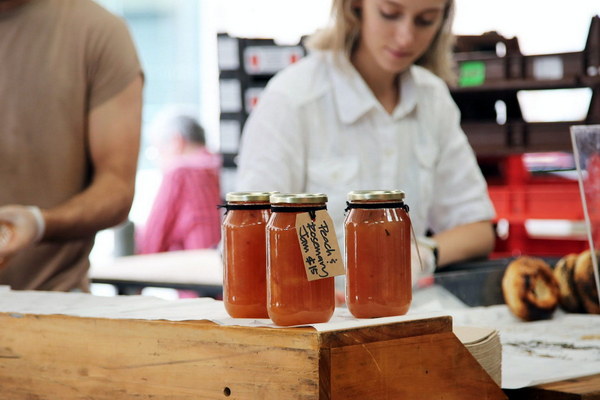Effective Strategies for Nurturing a Childs Spleen and Stomach Health
Introduction:
The health of a child's spleen and stomach is crucial for their overall growth and development. The spleen and stomach play a vital role in digestion, absorption, and the transportation of nutrients in the body. Weak spleen and stomach can lead to various health issues, including poor appetite, malnutrition, and weakened immune system. This article provides effective strategies for nurturing a child's spleen and stomach health.
1. Establish a Regular Eating Schedule:
Consistency is key when it comes to nurturing a child's spleen and stomach. Establishing a regular eating schedule helps regulate the digestive system and promotes efficient nutrient absorption. Aim to provide meals at consistent times each day, and ensure that snacks are limited to healthy options.
2. Focus on Balanced Nutrition:
A balanced diet is essential for a child's spleen and stomach health. Incorporate a variety of nutrients into their meals, including carbohydrates, proteins, fats, vitamins, and minerals. Some beneficial foods for a child's spleen and stomach include:
- Grains: Brown rice, oatmeal, and quinoa are excellent sources of carbohydrates, which provide energy and aid in digestion.
- Lean Proteins: Chicken, turkey, fish, and tofu are great sources of protein, essential for growth and repair.
- Healthy Fats: Avocado, nuts, and seeds contain healthy fats that support the absorption of fat-soluble vitamins and promote overall health.
- Vegetables: Dark leafy greens, carrots, and sweet potatoes are packed with vitamins, minerals, and fiber, which aid in digestion and absorption.
- Fruits: Berries, apples, and oranges provide essential vitamins and antioxidants, while being low in sugar.
3. Avoid Overeating:
Overeating can strain a child's spleen and stomach, leading to indigestion and other issues. Teach your child to listen to their hunger cues and stop eating when they feel comfortably full. Encourage portion control and limit sugary and processed foods, which can disrupt digestion.
4. Encourage Proper Eating Habits:
Teach your child to chew their food thoroughly before swallowing. This helps break down the food into smaller particles, making it easier for the spleen and stomach to digest. Avoid rushing through meals and create a relaxed eating atmosphere to improve digestion.
5. Provide Adequate Hydration:
Proper hydration is essential for a child's overall health, including their spleen and stomach. Encourage your child to drink plenty of water throughout the day, especially before and after meals. This helps with digestion and absorption of nutrients.

6. Regular Physical Activity:
Physical activity promotes good digestion and helps maintain a healthy weight. Encourage your child to engage in regular exercise, such as walking, cycling, or playing sports. This can also help reduce stress, which can negatively impact digestion.
7. Manage Stress:
Stress can affect a child's spleen and stomach function. Help your child learn stress-reducing techniques, such as deep breathing exercises, meditation, or spending time in nature. Reducing stress can improve digestion and overall health.
8. Seek Professional Advice:
If you suspect that your child's spleen and stomach are not functioning properly, it's important to consult a healthcare professional. They can provide personalized advice and treatment options, such as herbal remedies or dietary supplements.
Conclusion:
Nurturing a child's spleen and stomach health is essential for their overall well-being. By establishing a regular eating schedule, focusing on balanced nutrition, and promoting proper eating habits, you can help ensure your child's digestive system functions optimally. Remember to seek professional advice if you have concerns about your child's spleen and stomach health.









